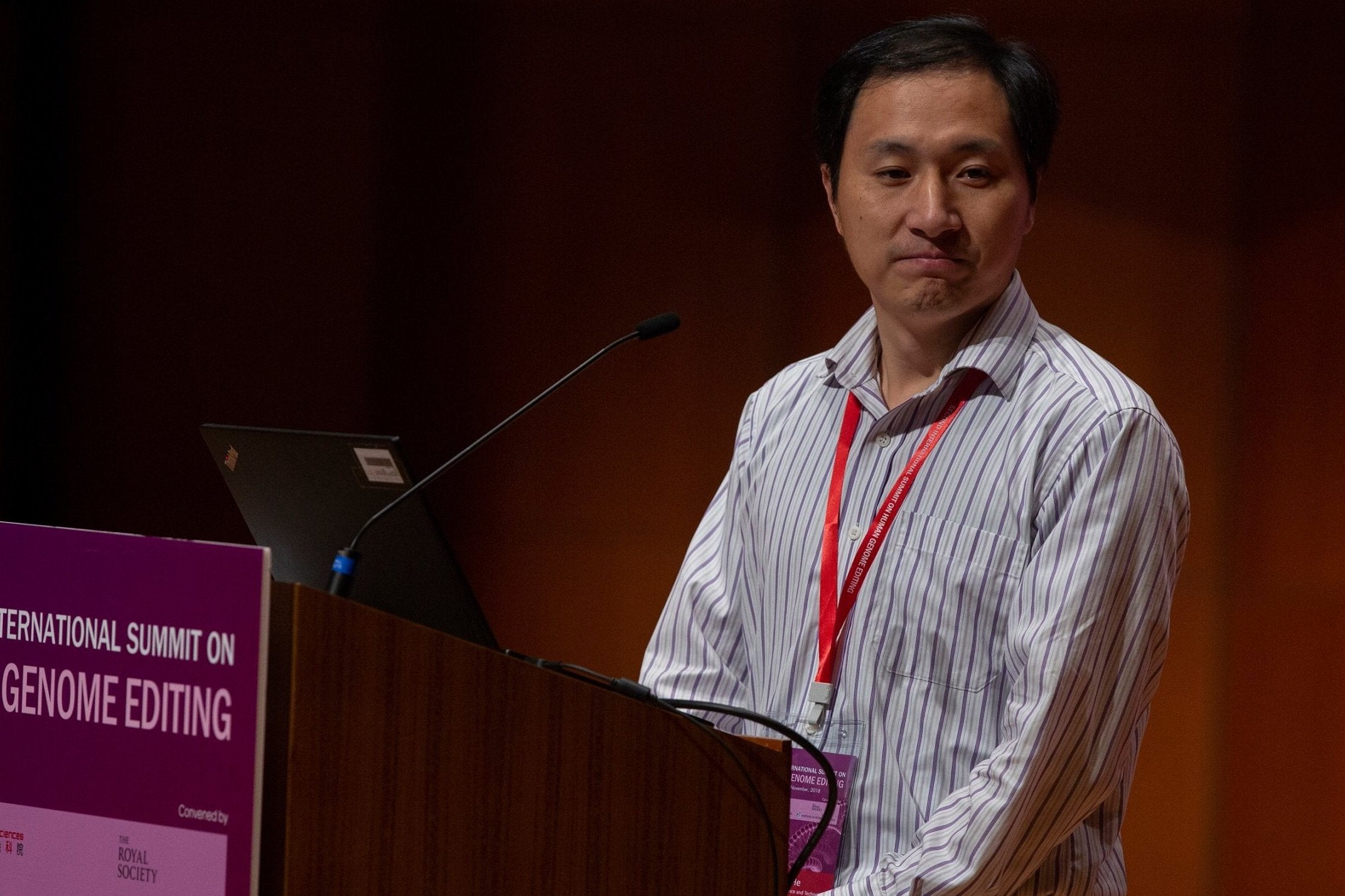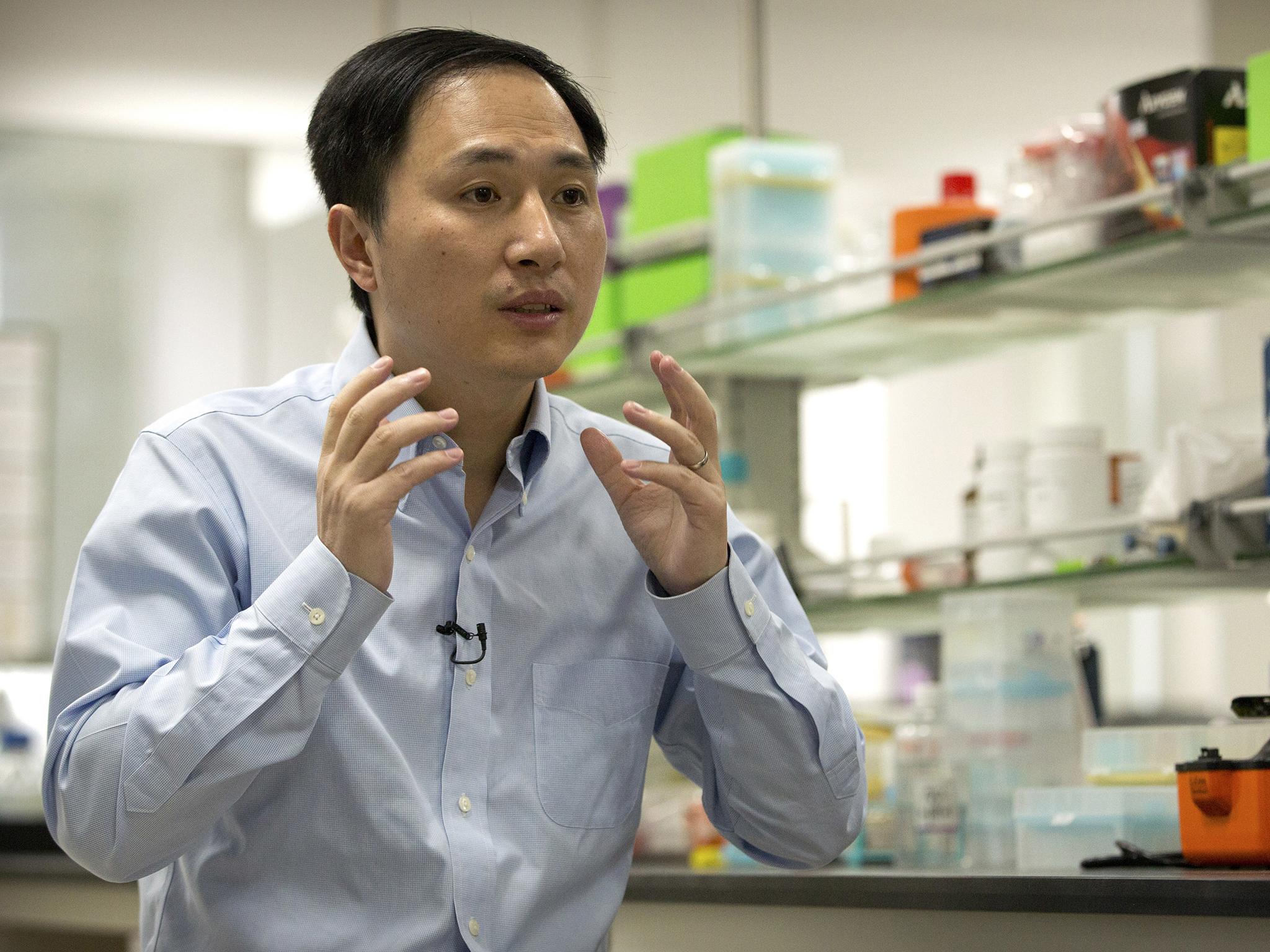I feel like any father, says discredited scientist jailed for editing babies’ genes
He Jiankui had been jailed for three years after being found guilty of ‘illegal medical practices’

The scientist who sparked outrage after saying he was involved in creating the world’s first gene-edited babies has asked people to respect the children and allow them to live a normal life.
In 2018, He Jiankui became the focus of one of the most controversial acts in modern scientific history after claiming he edited the genes of a pair of twin girls, nicknamed Lulu and Nana, before they were born.
A third baby, Amy, whose genes were also altered by him, was born a year later.
The Chinese scientist was sacked by China’s Southern University of Science and Technology in Shenzhen and had served a three-year prison sentence after he was found guilty of illegal medical practices.
In an interview with the South China Morning Post published on Tuesday, He said the children were living “a normal, peaceful and undisturbed life” and added that the world should “respect them” for it.
“This is their wish and we should respect them,” he told the newspaper.
He said he does not want the children’s normal life to be disrupted for the purpose of scientific research and said the priority should be the “happiness of the children and their families”.

The scientist studied physics in China and later moved to the US to do a PhD at Rice University, before his controversial gene-editing experiment. He did a post-doctorate in genome sequencing at Stanford University before he returned to China in 2012.
He first announced the birth of twins Lulu and Nana in a YouTube video on his channel four years ago. He said the babies were “as healthy as any other babies” and were home with their parents, Grace and Mark.
Later, at the Second International Summit on Human Genome Editing conference in Hong Kong, He defended his work and announced the birth of Amy.
He claimed he used gene-editing tool CRISPR-Cas9, which can insert or deactivate certain genes. He said he edited the CCR5 gene – a pathway used by the HIV virus to enter cells – to make them resistant to HIV.
The reaction to He’s announcement was swift as biomedical and AIDS researchers across the world condemned him for the experiment. In a joint statement, Chinese biomedical scientists dubbed his experiment “monstrous”, “premature, dangerous and irresponsible”.
The Chinese government announced an immediate investigation, which later found him guilty of “illegal medical practices”.

Speaking to SCMP, He said he feels worried like any other father in the world when asked if he is concerned about the future of the children.
“You will have high expectations of them, but you also have huge unease,” he said.
He said he is obliged to track the health status of the children as part of the consent for the research.
“After the age of 18, the children will decide whether to do medical follow-ups for their individual needs. We committed to doing this for their lifetimes,” he said.
He said he would like to buy extra health insurance for the children, but no insurance company is willing to insure them after the revelation that their genes are altered.
The scientist now wants to open a charitable foundation to raise money for the children for any future unexpected medical expenses.
Reflecting on his act, however, he admitted: “I did it too quickly.”
He is scheduled to give talks at a number of universities and conferences, including a scheduled visit to the University of Oxford next month to speak on CRISPR gene-editing technology in reproductive medicine.
He has also set up a lab in Beijing to work on affordable gene therapies for rare genetic diseases.
Join our commenting forum
Join thought-provoking conversations, follow other Independent readers and see their replies
Comments